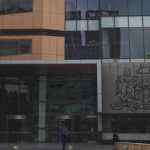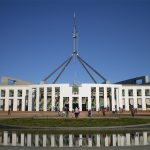COVID-19 Restrictions Cause Unprecedented Court Delays

Court delays and lack of funding for the criminal justice system are significant problems across Australia for years.
But a recent case of a man whose trial was delayed through COVID-19 restrictions, resulting in a four-year gap between his arrest and sentencing, shows just how bad the problem has become.
Fours years to finalise case
Queensland man Andre Nigel Adomaitis was arrested in October 2017 and charged with sexually assaulting a young intoxicated person
He was committed for trial in May 2018 and an indictment was presented later that year.
His case was listed for a jury trial in 2019, but did not proceed.
It was then rescheduled for July 2020, but the trial date was vacated because of the COVID-19 pandemic.
A jury ultimately found him not guilty of sexual assault, but guilty of the lesser charge of indecent assault for rubbing the 20-year old’s vagina during a sleep over at his home.
Mr Adomaitis was sentenced this week by District Court Judge Michael Byrne to nine months in prison, but the Judge immediately suspended that sentence after taking into account the long delay in the case being finalised.
Delays affect everyone involved
“A delay of over four years between your arrest and your sentence is, quite frankly, an atrocity,” Judge Byrne told the defendant, adding that the “extraordinary” delay was a form of extracurial punishment.
His Honour heavily criticised the State Government for not providing the Beenleigh Court (south of Brisbane) with adequate resources. He said it was not only an atrocity that the accused man had to wait four years for sentencing, but that the victim also had to wait three years to give her pre-recorded evidence at the trial.
New South Wales Courts face a major backlog
The situation in New South Wales is at a crisis point as well.
Long before Covid-19, NSW Courts were crying out for more funding and resources.
In 2019, then Chief Magistrate of the NSW Local Court Judge Henson (who retired this year) made a public plea to the NSW Government for more funding to assist the court to effectively deal with ever-increasing caseloads. He remarked at the time that the NSW Local Court was on the brink of burnout.
By the time 2021 came around, lockdowns effectively shut down much of the criminal justice system, significantly increasing the backlog.
Challenges to COVID-19 fines could created a further backlog
Statistics show that of all the COVID-19 fines challenged through Revenue New South Wales during July-October this year, only one in ten was successful, which ultimately means that elections to take these matters to court will put further pressure on the system.
The Downing Centre Court has recently undergone a massive $10million refurbishment which increases the number of courtrooms to 40, which it is hoped will go some way to easing that burden.
Cases running once again
In August, it was reported that 134 criminal trials delayed and rescheduled to begin in the NSW District and Supreme Courts as soon as the State reopened would have to be dealt with. Some have been pushed back until 2022.
The Supreme Court hears the most serious criminal cases, although the NSW District Court hears a much higher volume of criminal trials, which had to be stopped during lockdowns.
Delays in hearing criminal trials mean accused people are spending longer in prison awaiting trial, unless they have been released on bail.
While courts across NSW did their best during the pandemic to implement technological solutions such as telephone conferencing, video-link and email.
Other alternatives being discussed as potential solutions include carefully scheduling judges’ schedules, as well as having Court of Appeal judges take on some civil cases.







